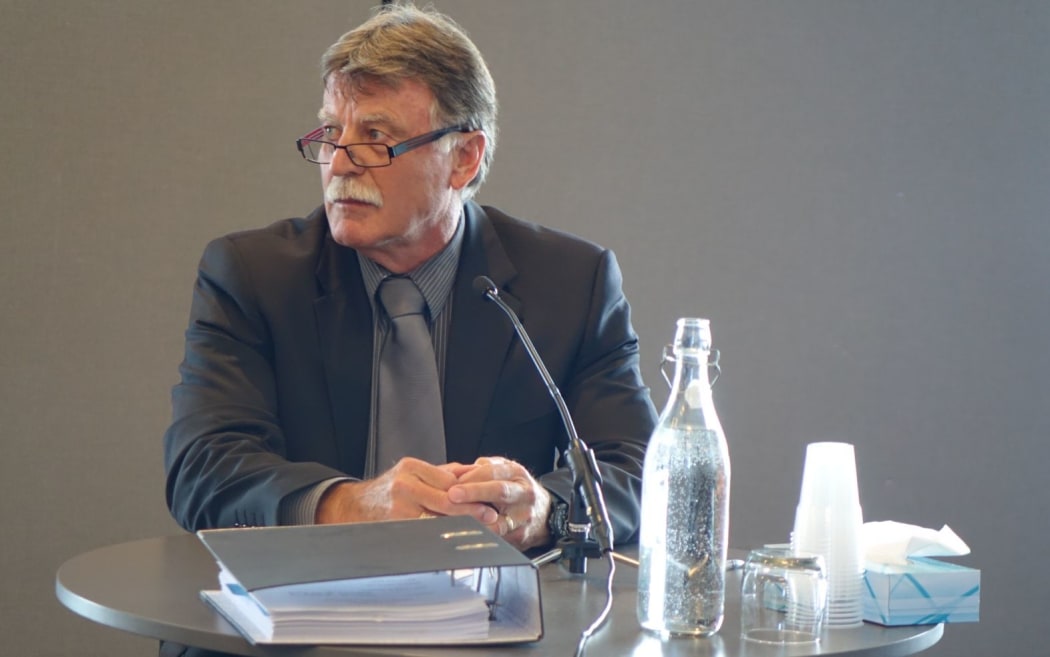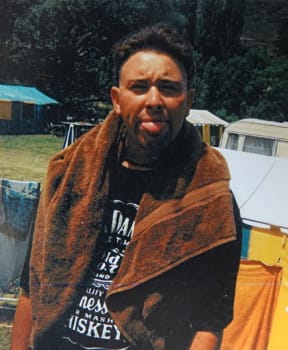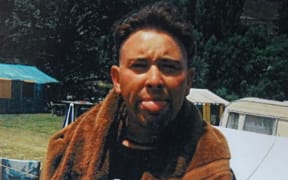Questions have been raised about the quality of a Corrections Department investigation into the death of an inmate at Otago Prison during heated questioning at an inquest.
Jai Davis died at Otago Prison's At Risk Unit in 2011 after consuming the drugs he had smuggled into prison, but it has taken until now for the circumstances around his death to be aired in public.
Shortcomings in the original police investigation have already been highlighted during the inquest.

David Morrison gives evidence at the Jai Davis inquest. Photo: RNZ / Ian Telfer
Yesterday, a lawyer for the Howard League for Penal Reform asked Corrections Inspector David Morrison why he did not look at the role of the prison manager, Ann-Maree Matenga.
Lawyer Nigel Hampton QC referred to evidence that Ms Matenga did not follow protocols requiring a medical officer to be called because she did not realise the words 'medical officer' meant a doctor, not the prison nurse.
He asked if Mr Morrison was aware the manager did not know what a medical officer was, to which he replied he found out subsequently through the media's coverage of the inquest.
Asked why he did not ask this as part of his investigation, Mr Morrison said it was clear from his report that the manager breached process.
Mr Hampton asked the Corrections Inspector whether his investigation looked into why Jai Davis did not go to the prison's receiving office when he was first brought to the prison instead of being taken straight to the At Risk Unit.

Jai Davis died in prison in February 2011. Photo: Supplied
This was important because of the protocols in place at the receiving office that required a doctor to be called if a prisoner was suspected of smuggling drugs internally - a lost opportunity, in Mr Hampton's view, to get Mr Davis the help he needed.
After not answering the question, Mr Morrison became confused about whether Mr Hampton was referring to the receiving office or the receiving officer.
At this point Mr Hampton lost patience with Mr Morrison and in a loud voice spelled out the word office for him, leading to an interjection from Corrections Department lawyer Mary Jane Thomas.
Ms Thomas said she understood the need for robust questioning but asked the coroner if public humiliation of her client actually assisted people.
The coroner, David Crerar, agreed, asking Mr Hampton to modify his questioning.
In the end Mr Morrison conceded it had not occurred to him to ask why Mr Davis was not seen by the receiving office.
Supervision policy questioned
While Mr Morrison's investigation recommended another inquiry into the failure of two prison guards to properly check on Mr Davis including the logging of checks that never occurred, he fell short of recommending constant supervision of prisoners suspected of carrying drugs internally.
The lawyer assisting the coroner, Grant Burston, asked Mr Morrison whether constant supervision was a good idea.
Mr Morrison said there could sometimes be grounds for this to happen but that was a decision for the individual prison manager to make.
Grant Burston said this did not go far enough and that constant observation should be made mandatory, something Mr Morrison eventually conceded would help.
Evidence was also heard from the Corrections clinical director, Debra Gell, who admitted mistakes were made in caring for Mr Davis.
This is the first time a senior manager at the department has made such an admission.
The inquest is due to end today.




